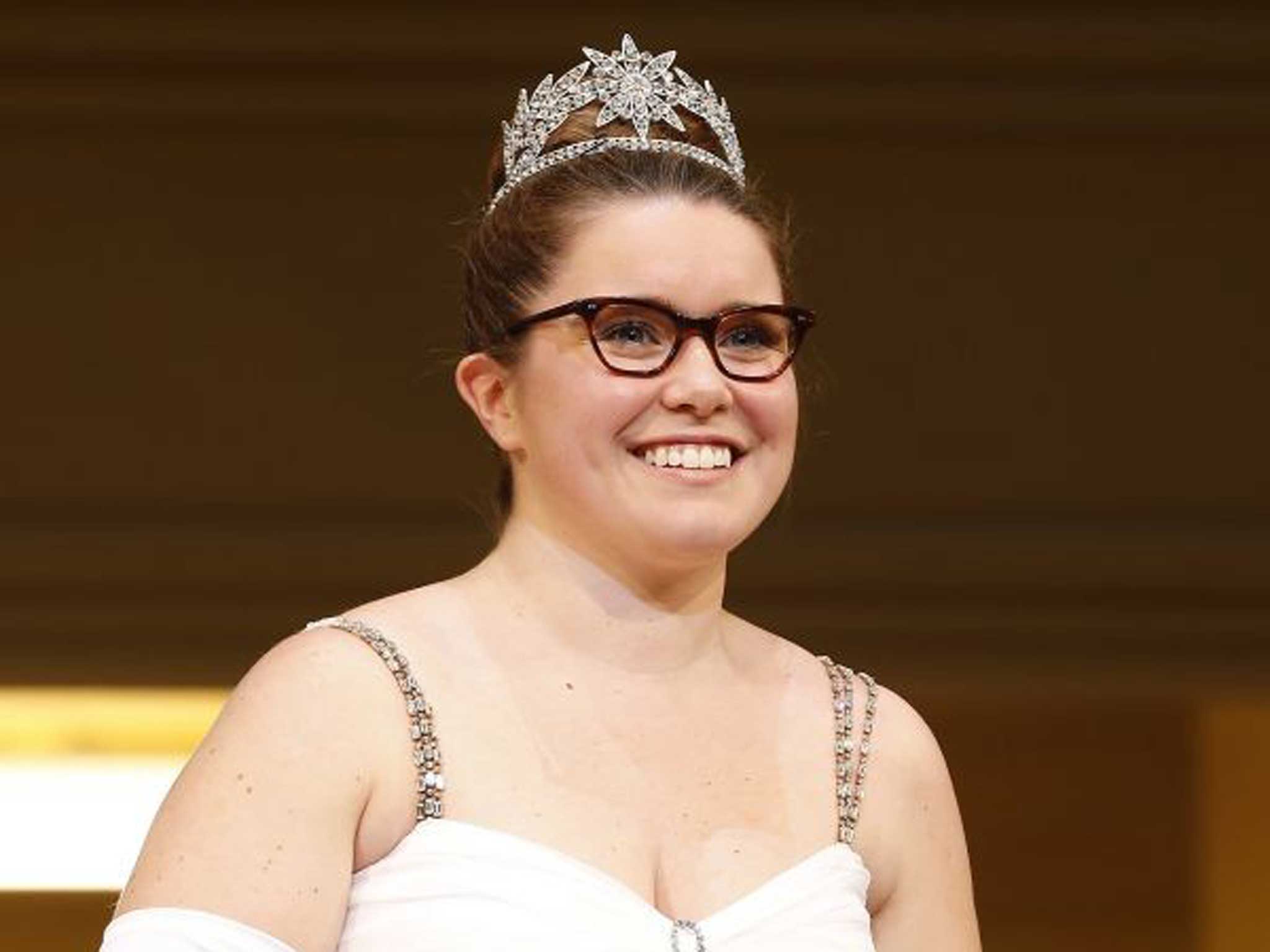Opera must please the eye as well as the ear
No one except a supermodel can carry off white satin, which Tara Erraught was stuffed into

Your support helps us to tell the story
From reproductive rights to climate change to Big Tech, The Independent is on the ground when the story is developing. Whether it's investigating the financials of Elon Musk's pro-Trump PAC or producing our latest documentary, 'The A Word', which shines a light on the American women fighting for reproductive rights, we know how important it is to parse out the facts from the messaging.
At such a critical moment in US history, we need reporters on the ground. Your donation allows us to keep sending journalists to speak to both sides of the story.
The Independent is trusted by Americans across the entire political spectrum. And unlike many other quality news outlets, we choose not to lock Americans out of our reporting and analysis with paywalls. We believe quality journalism should be available to everyone, paid for by those who can afford it.
Your support makes all the difference.When a woman's body is ridiculed in the press, it is usually because she does not conform to some artificial ideal of what a woman should look like. In the case of Tara Erraught, the mezzo soprano whose physique prompted much criticism after her Glyndebourne performance in Richard Jones's new production of Der Rosenkavalier, it is because she does not look like a real man. As Octavian in Strauss's mildly degenerate opera, she is the on-stage lover of, in this production, the very beautiful Kate Royal, and the coupling is one many found implausible, one critic complaining that she was "dumpy", another bemoaning her "puppy fat".
It is the lot of mezzo sopranos to play trouser roles such as this. Some make very passable men: Sarah Connolly in the title role of Giulio Cesare, also at Glyndebourne, in 2005, convinced you in seconds flat that she was the conquering type. Some men don't even make passable men: last week, also at Glyndebourne, Eugene Onegin opened with Andrei Bondarenko in the title role of the arrogant visitor who humiliates a romantic ingénue. All gussied up like the Prince Regent, he was a tubby and unlikely object of her affections.
Costume may be at the root of both casting problems. Designers sketch and colour in languidly lovely line drawings of gowns and jackets, but once they have been run up in a size 14 or 42in chest, these can look preposterous. One singer has told me of the inappropriate gear she and colleagues have been stuffed into – a headdress that blocked out all sound, a halter-neck dress on a singer with boils. Few regular opera-goers have not flinched at flimsy shifts, meanly cut on the bias, that expose distractingly imperfect knees while the singer is working her socks off vocally. No one except a supermodel can carry off white satin, which both Erraught and Bondarenko were stuffed into.
Many performers, in opera and beyond, from Maria Callas to Hugh Jackman, set about reshaping their bodies for professional purposes. It is pretty much a myth that weight loss means voice loss: the singer just needs to be physically strong enough to support the voice. And there is perhaps a surprising amount of sensitivity within the industry about anorexia. A dancer turned down for a part in a musical will no longer be told overtly that it is because she is too heavy.
But the days are gone when an 18-stone Mimi could heave herself on to a couch and die stoutly of consumption. Today's visually conscious audience draws a line between the suspension of disbelief and the downright implausible: whether paying a tenner or the thick end of £200, they go to the opera for visual as well as aural treats.
Erraught has had a horrid week. But no one is forced to be an opera singer: they may be the toast of the town or they may be let down by their invisible team. That's show business.
Join our commenting forum
Join thought-provoking conversations, follow other Independent readers and see their replies
Comments